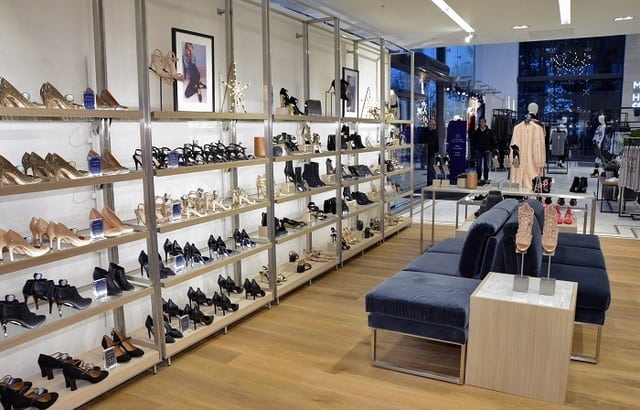Thursday was a veritable mixed bag for major UK retailers as Next reported decent half-year results and grocer Morrisons’ results told of a recovery story.
But mainstay British department store John Lewis delivered unequivocally bad news, posting a 53.3% drop in pre-tax profit to £26.6m, as higher costs put pressure on margins.
The group’s partnership profit before tax and exceptional items was down just 4.6%, but after excluding property profits was 17.4% lower.
John Lewis chairman Sir Charlie Mayfield blamed the lower headline number on building inflationary pressures driven by exchange rates and political uncertainty.
Despite a “challenging market”, the firm delivered gross sales of £2.07bn, up 2.3%, and 0.1% higher like-for-like sales.
Although a lot will be riding on the group’s performance in the final quarter, which typically accounts for over half of its profits before exceptional items, Mayfield cautioned that higher margin pressure and pension accounting charges in the second half of the year will impact profits for the year.
Guy Ellison, head of UK equities at Investec Wealth & Investment, says the dramatic drop in profit is “a clear indication of the scale of the restructuring task it faces”.
“The underlying profit numbers, which are down 5%, are more indicative of the current state of affairs at the company whereby cost of goods have gone up as result of a weakening pound and which can’t be fully passed on to an already stretched consumer, who has seen the cost of living rise faster than wages.”
Glimmers of hope
However, there were what Ellison calls “glimmers of hope” for the UK retail sector, with Next upgrading its forecast for its full year profits and sales, recovering from pre-tax profits slumping 10% in the six months prior.
Though Next’s half-year results told a “pretty grim” picture, with high street profit down 33%, “there are signs that the struggling retailer is on the mend,” says Interactive Investor’s head of equity strategy, Lee Wild.
Although Next chief executive Simon Wolfson admitted “the clothing market and high street look as challenging as ever”, with product improvement initiatives coming through and price inflation set to moderate, the group upgraded its sales forecast for the year from -3% to 0.5% to -2% to 1.5%.
That works out to a £7m improvement in profit estimates, says Wild, adding that “annual profit will still be lower than last year, even in the best-case scenario”.
“It’s had help from the weather, and last year’s weak corresponding figures had not set the bar very high, but the outlook has undoubtedly improved and Next has fixed problems of its own making,” Wild continues.
“It shouldn’t be too hard beating last year’s awful third-quarter numbers either.”
On the back of its interim update, Next’s shares took off, climbing 10% to £48.62p, its highest price all year.
Wild adds: “Next shares had struggled to trade above £45 consistently since the January profits warning, but they smashed through that on these results.
“The share price is now up as much as 36% in just nine weeks to an eight-month high, but Next is generating oodles of cash and, after profit upgrades, the shares are still not expensive and trade at a discount to the sector.”
Sales growth for Morrisons
Morrisons, meanwhile, reported a big improvement in profitability, driven by its seventh successive quarter of sales growth.
Pre-tax profits were up 40% to £200m, while group turnover improved 4.8% to £8.42bn.
The supermarket chain also managed to rack up cost savings of £1bn during the interim, taking its net debt down to below £1bn.
Although, Morrisons’ good numbers marginally beat consensus expectations, Helal Miah, investment research analyst at The Share Centre, cautions that fierce competition from low costs alternatives still pose a credible threat.
“Morrisons performance somewhat reflects improvements at other supermarkets in the face of competition from Aldi and Lidl. However, Aldi and Lidl are here to stay and will impact Morrisons segment of the market more than others.
“Combine this with the modest yield, we can only recommend Morrisons as a ‘hold’ at best for the time being.”










